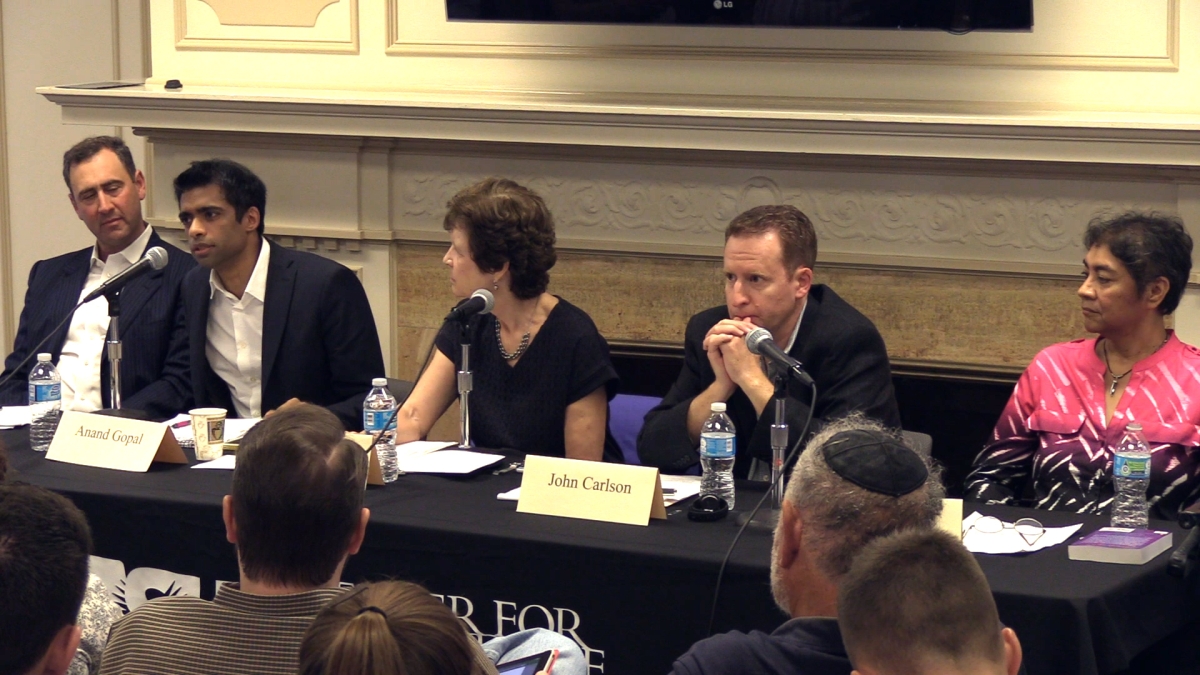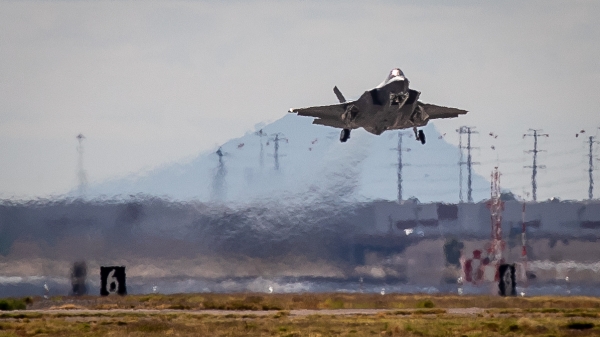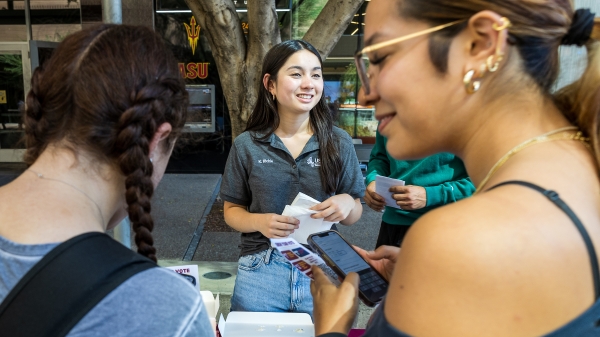Terrorism and the public consciousness

Panelists discussed how 9/11 changed Americans' mindset around terrorism, September 7, 2016. From left: Daniel Rothenberg, Anand Gopal, Linell Cady, John Carlson and Delia Saenz.
Messy politics, a lack of understanding of religious differences and over-heated political rhetoric all combine to create confusion and an unnecessary fear of terrorism, according to panel of ASU experts.
“Terrorism has been with us throughout the history of mankind,” said Linell Cady, ASU professor and director of the Center for the Study of Religion and Conflict. “Leaders are afraid to come out and say ‘this is complex’” because of the narrative of fear created by the coverage of terrorist actions.
Cady moderated a panel Wednesday that explored the state of terrorism in the public consciousness fifteen years after the terrorist attacks on September 11, 2001.
The complexity of terrorism is often obscured by media coverage focusing on the scariest aspects of any particular attack.
“We live in an environment where challenges and fears are manipulated,” said Daniel Rothenberg, co-director of the Center on the Future of War.
Rothenberg argued that despite the coverage such attacks get, the danger posed by terrorist actions in the United States and Europe is minimal.
On the panel with Rothenberg were John Carlson associate director of the ASU Center for the Study of Religion and Conflict and associate professor of religious studies; Delia Saenz, ASU associate professor of psychology, and an expert in intergroup relations and social identity; and reporter Anand Gopal who has extensive experience covering the Middle East.
Panelists spoke about how Americans’ understanding of religion and terrorism has changed because of 9/11, and how to raise awareness about religion and terrorism in the Middle East.
Each panelist drew from their own research efforts in order to touch on the issues of the last 15 years.
“My hope is that the audience will learn that terrorism really is part of a broader context in terms of human history,” Delia Saenz said.
Saenz focused on the psychological variables that lead individuals to distance themselves from other groups, and the fears individuals encounter when coming in contact with groups of individuals of a different race.
During the discussion, Saenz spoke about how categorizing individuals based on their race or religion can seem simple, but instead of doing so, individuals should consider the context of each situation and ask ourselves what the causes of conflict really are.
Saenz believes that, in order for the United States to progress, individuals must learn to create balance and harmonize with individuals in the Middle East.
Gopal said that there are misperceptions surrounding religion and conflict in the Middle East. He believes it is easy for individuals to assume there is a necessary connection between Islam and politics. Gopal said that the world should analyze the politics surrounding Islam.
“We should understand politics in order to understand religion,” Gopal said.
Carlson said that the United States government has fully grasped the role of Muslims, and many individuals in the government have gained personal experience working alongside Muslims.
According to Carlson, at the end of the day, the only enemy that can defeat democracy is, in fact, democracy, by not living up to the principles that we espouse.
The event was videotaped and will be published as a podcast by the Center for the Study of Religion and Conflict. For more information visit the Center’s website at https://csrc.asu.edu/.
Written by Alyssa Hesketh in the Center for the Study of Religion and Conflict.
More Local, national and global affairs

Thunderbird at ASU, AUK student appointed as Ukraine’s deputy minister of education and science
Nadiia Kuzmychova, a student in the Master of Leadership and Management (MLM) program at Thunderbird School of Global…

ASU creates pathways to public service careers for military students
The School of Public Affairs at Arizona State University is making careers in public service easier to access for military…

Minting community leaders and stellar citizens: ASU’s Public Service Academy approaches 10-year milestone
Airports that are easier to navigate.Health care that is simple to access.Helping underrepresented youth reach college.These are…